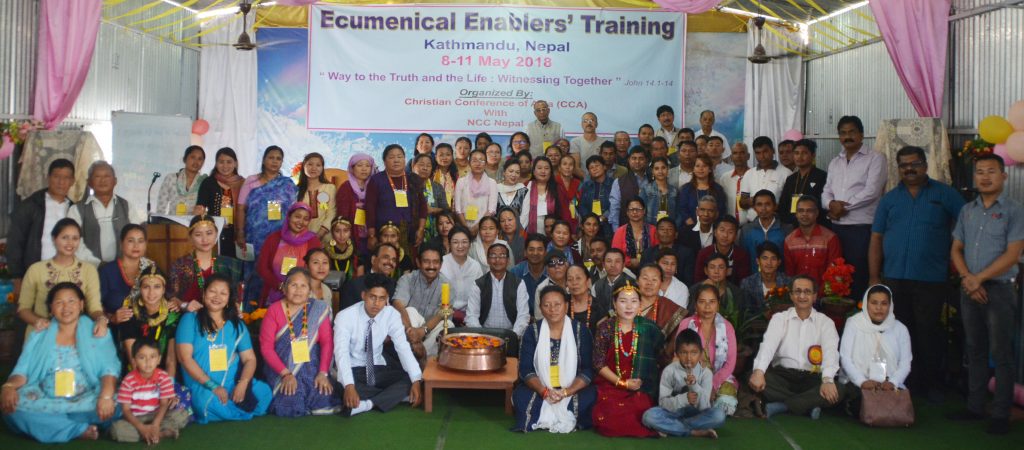Training of Nepalese church leaders in ecumenical formation and capacity building

While being strengthened in their faith and witness, how the minority Christians in Nepal could witness together in unity in a multi-faith society was the focus of the national ecumenical enablers’ training programme organised by the Christian Conference of Asia (CCA).
The ecumenical enablers’ training organised in collaboration with the National Council of Churches in Nepal (NCCN), and held from 8 to 11 May 2018 at the Emmanuel Baptist Church in Kathmandu, Nepal was part of CCA’s Ecumenical Enablers’ Training in Asia (EETA) programme to develop ecumenical leadership at grassroots. About 90 participants from various parts of Nepal attended the training.
“First of all we need to build our unity as Christians belonging to different denominations in Nepal, for which ecumenical formation is important” stated Rev. Simon Grung, President of NCC Nepal in his opening address.
R. C. Acharya, General Secretary of NCC Nepal, in his introductory remarks emphasized the need for the togetherness of Nepalese Christians as witnesses in God’s mission and to seek ways in prayer to heal the divisions among Christian communities in Nepal.
“We are here to confirm our calling as ‘partakers’ in God’s mission, witnessing the Gospel, serving the people and transforming the communities. We have a great commission as God’s servants to revive the Church in Nepal and embrace all in our communities as we journey together in our faith.”
Being one of the fastest growing Christian communities in the world, there is a great need to strengthen theological training and ecumenical formation in Nepal, where the pastors and congregational leaders are not formally trained as many of them have had no access to formal theological education.
It is in this context that CCA initiated the ecumenical formation and capacity building training for pastors and lay leaders to equip them with a more holistic understanding on ecumenical theology and leadership.
EETA aims to develop ecumenical leadership at various levels, reach out to more people at the grassroots level and to equip them with a better contextual biblical theological understanding.
Training sessions were facilitated by Rev. Dr. Roger Gaikward, General Secretary of the National Council of Churches in India, Rev. Vinod Victor of the Melbourne C.S.I Congregation / Anglican Church in Australia Melbourne Diocese, and Rev. Grace Moon, Programme Coordinator of CCA.
Despite strict laws that ban religious conversion in Nepal, Christianity has been spreading rapidly over the last two decades in Nepal; one of the major factors behind Nepal's deteriorating religious freedom rights in recent years has been due to a legislation signed into law that criminalizes religious conversion.
The founding of the NCC Nepal was facilitated by the CCA during 1998-1999.










